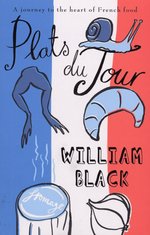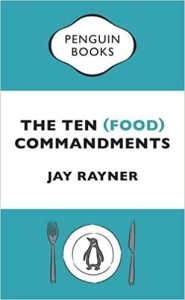Book Review: “Plats du Jour” by William Black

William Black spent years going backwards and forwards from France to the UK as a fish dealer. Consequently, he met lots of French people in and around the hospitality industry and learnt a fair bit about the history of French food, haute cuisine, regional dishes, markets and the best vendors.
Like Rick Stein, he as the opinion that the French are not to fussed about molecular gastronomy, or foams and smears on large white plates. He just wants good honest food, competently cooked.
Having been a fish dealer, he spends a lot of time around the coast and in the restaurants of Brittany. Also in the south west of France where there’s clearly a Spanish influence in the cuisine.
He writes about many traditional peasant dishes such as tête de veau, tripe, pâté de campagne, sole Normande, pot au feu, bouillabaisse, and confit. Interspersed are recipes which he’s received from market vendors, chefs and housewives.
It’s interesting that there’s not a lot of variation or experimentation with traditional dishes. For example, one cannot tinker with a recipe for coq au vin; it just wouldn’t do. The idea of recipe tweaking would be more flexible perhaps in an Anglo country.
The views in this book are those of an Englishman, irreverent, but reasonable and entertaining. You could call it a travelogue with bite.

